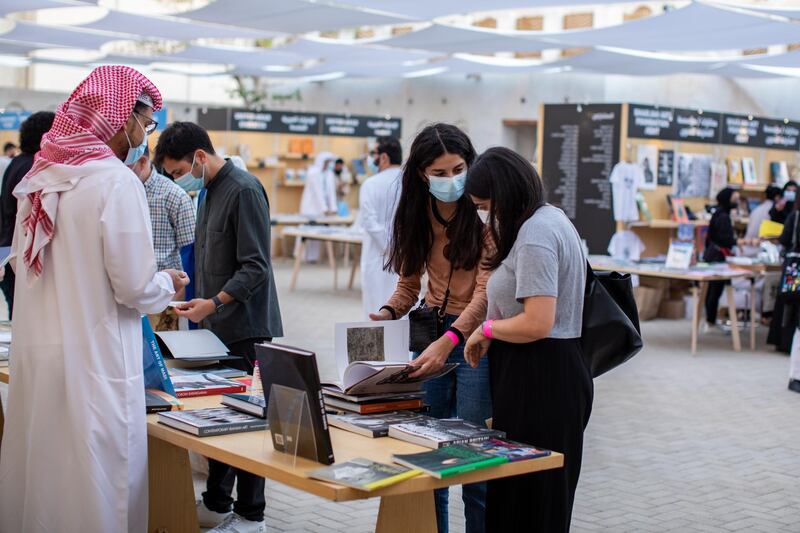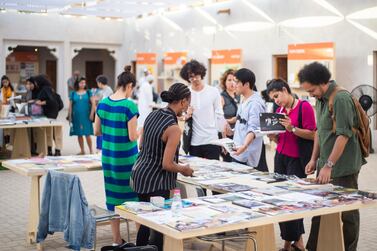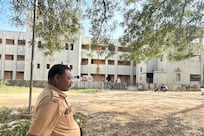The Sharjah Art Foundation has announced four recipients of its second Focal Point Publishing Grant.
Selected from more than 100 submissions following an international open call, the winners - Ali Essafi, Ridha Moumni, Gabriella Nugent and hakara - will share a total of $27,000 to support research projects in the Long-Form Essay and Publication Reprint categories. To be completed over the course of the coming year, the projects will be published by Sharjah Art Foundation and presented at future editions of the art book fair Focal Point.
In line with the overarching theme of Sharjah Biennial 15 (due to open in spring 2022), which is highlighted in its title—Thinking Historically in the Present—the grant’s open call was directed towards supporting art historical research focusing on global modernism in the Measa (Middle East, Africa and South Asia) region.
What are the winning projects?
The first three projects are long-form essays; the final project is a publication reprint.
Long-form essays
In his long-form essay, Ali Essafi will examine the North African tradition of the Halakat, explored as a lost experimental narrative format through the works of three pioneering filmmakers of the postcolonial Maghreb: Memory 14 (1971) by Ahmed Bouanani (Morocco), Mohammadia (1974) by Ahmed Bennys (Tunisia) and How Much I Love You (1985) by Azzedine Meddour (Algeria). These films deconstructed the official discourse of colonial history and were either censored or marginalised. They have since been mostly ignored by local and international audiences.
Ridha Moumni’s text will explore the political legacy of the School of Tunis (1943–1979) in fostering the cult of Habib Bourguiba and his prominence in Tunisian culture and history. Challenging the predominant historical narrative that the School of Tunis operated independently of the State, the essay will argue that its founding artists had a close relationship with Tunisia’s first independent government. Their paintings and sculptures filled the new government’s modernist edifices, thereby shaping the nation’s urban landscapes and creating a distinctive iconography in service of the independent nation’s first regime.
Gabriella Nugent’s essay will situate Egyptian artist Inji Efflatoun’s artwork within broader global networks and explore her relationship with Mexican muralists David Alfaro Siqueiros, Diego Rivera and Jose Clemente Orozco, specifically her 1956 encounter with Siqueiros, which prompted her interest in social realism. Through the examination of an archive of personal correspondence, the research hopes to shed light on how the friendship influenced Efflatoun’s adoption of the language and philosophy of Mexican muralism to address the political situation in Egypt and how she challenged the muralists’ masculinist vision of the world rooted in European modernism.
Publication Reprint
The online bilingual journal hakara proposes the mapping of regional modernism in India in the form of a visual arts reader. Bringing together critical essays, travelogues, symposia, images and narrative writing from the archives of Marathi periodicals from the 1940s to the 1960s, the reader will reproduce and translate into English 10 to 12 historical texts published originally in Marathi, which will be presented alongside a supporting introductory essay. Researched and introduced by Ashutosh Potdar (Flame University, Pune) and Noopur Desai (Asia Art Archive, New Delhi), the reader will attempt to provide rich, representative formulations of modernism that can lead to a possible reassessment of the social and cultural movement from a contemporary perspective.
Since its establishment in 2009, the Foundation has published a variety of books on modern and contemporary art, including artist books, catalogues and scholarly volumes. The Foundation supports the research-based efforts of visiting artists, curators and scholars year-round and publishes catalogues for biennials and curated exhibitions, which are made available to local, regional and international audiences interested in contemporary art and publishing.
Focal Point is on until Saturday, December 19 in Bait Obaid Al Shamsi, Arts Square. The fair is free to attend, but online booking is encouraged. For more information, visit sharjahart.org








